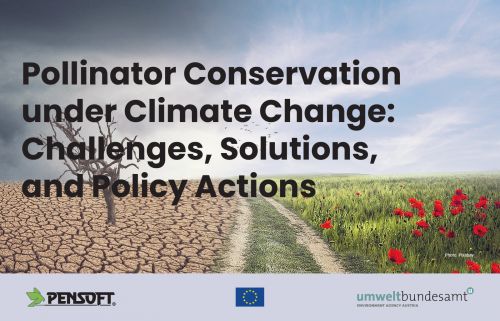Consultation workshop "Pollinator Conservation under Climate Change: Challenges, Solutions, and Policy Actions"

Climate change is expected to significantly impact pollinator communities in Europe. The Assessment Report on Pollinators, Pollination and Food Production by the Intergovernmental Science-Policy Platform on Biodiversity and Ecosystem Services (IPBES report) highlights that some pollinator species (e.g., butterflies) have already moved their ranges, altered their abundance and shifted their seasonal activities in response to observed climate change over recent decades. For many other pollinators climate change induced shifts within habitats have had severe impacts on their populations and overall distribution. Beyond 2050, all climate change scenarios reported by the Intergovernmental Panel on Climate Change suggest that (i) community composition is expected to change as certain species decrease in abundance while others increase and (ii) the seasonal activity of many species is projected to change differentially, disrupting life cycles and interactions between species.
The workshop aims to examine the latest knowledge and enhance our understanding on climate change related risks for pollinators, gather views and concrete proposals on how to minimise these risks, , and try to identify also potential opportunities. The EU Strategy on Adaptation to Climate Change will frame the discussions which therefore will focus on smarter adaptation (improving knowledge and managing uncertainty), faster adaptation (speeding up adaptation across the board), and more systemic adaptation (supporting policy development at all levels and sectors) in the context of pollinator conservation.
The workshop targets experts from the nature conservation and land management communities as well as pollinator conservation experts, experts in climate change induced alterations of ecosystems and habitats and climate change adaptation policies.
The workshop is part of a broader consultation that collects expert views and proposals in the context of the revision of the EU Pollinators Initiative. The initiative, adopted in June 2018, was the first-ever EU action framework to tackle the loss of wild pollinators. The Commission’s review of the Initiative in May 2021 showed that the EU actions for pollinators have to be strengthened in order to reverse their decline.